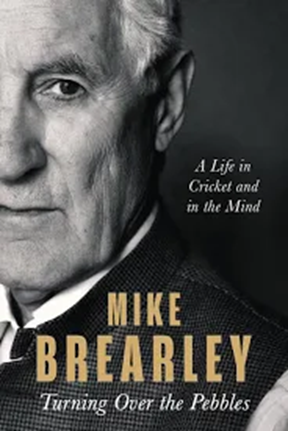Mike Brearley at Oxford Literary Festival

Cricket and the Psycho-analyst’s Couch
Mike Brearley O.B.E. is a man who has excelled in many different fields, you could say...the cricket field being just one of them. He has been a classicist, a sportsman, an academic philosopher and a psycho-analyst. Now he has become writer.
On Saturday 16th March, the Sheldonian Theatre was the setting for a fascinating chat between Brearley and BBC correspondent Nick Higham, about “Turning over the Pebbles,” Brearley's reflective account of his very many-sided life.
Brearley successfully captained Cambridge University, the MCC under-25 side, Middlesex County Cricket Club, and then England. But this was certainly not an afternoon of cricketing nostalgia. Instead, it was an illustration of just how varied a life can be, and how thoughtfully it can be reflected upon.
At Cambridge, as well as reading Classics, Brearley volunteered for the Samaritans, and at one point was interviewed for a role in MI6. He then became a Lecturer in Philosophy at the University of Newcastle, playing cricket in the academic holidays.
However, he decided he wanted to find a field of study with a therapeutic dimension. He underwent a course of Psycho-analysis as preparation for moving into that field, and combined an exhausting induction process with playing cricket as an amateur for Middlesex. “It was literally a case of psycho-analysis in the morning, and playing cricket at Lord’s in the afternoon”.
Brearley also described the shift in his own understanding of psycho-analysis, moving away from the Freudian view of the analyst as an objective observer, detached and impersonal. “The analyst or therapist almost certainly develops an emotional relationship with the patient” he said. “The process requires patience, because we are talking about changing ways of feeling and thinking which have developed over a lifetime. Nowadays, many people come to Psychotherapy hoping for a Quick Fix.”
Brearley also had much to say about captaining the England cricket team. Successful tactics and technique are important, of course, but the good captain needs to help his players overcome their fear of failure. Brendan McCullum, England’s current manager, was cited as someone who has brought about a remarkable improvement in the England players’ confidence, simply by helping them to think positively.
On the other hand, not everyone loves the way things have developed. Can a thoughtful lover of cricket approve of the way T20 and The Hundred have come to dominate our summer game, at the expense of the county game? While recognising the commercial appeal of single-innings cricket, Brearley spoke up for the longer format. Again, he spoke of the virtues of patience, and of out-thinking the opposition. One felt he was about to say “Nowadays many spectators come to cricket hoping for a Quick Fix.”
Brearley spoke quietly, as befits a thoughtful academic (I wonder if the organisers could have given him a more powerful microphone, to cater for those of us who struggle to hear at times) and as Higham questioned him, the event had the empathy of a quiet fireside chat.
I now look forward to the pleasure of reading my signed copy of “Turning over the Pebbles, a life in Cricket and in the Mind.”
